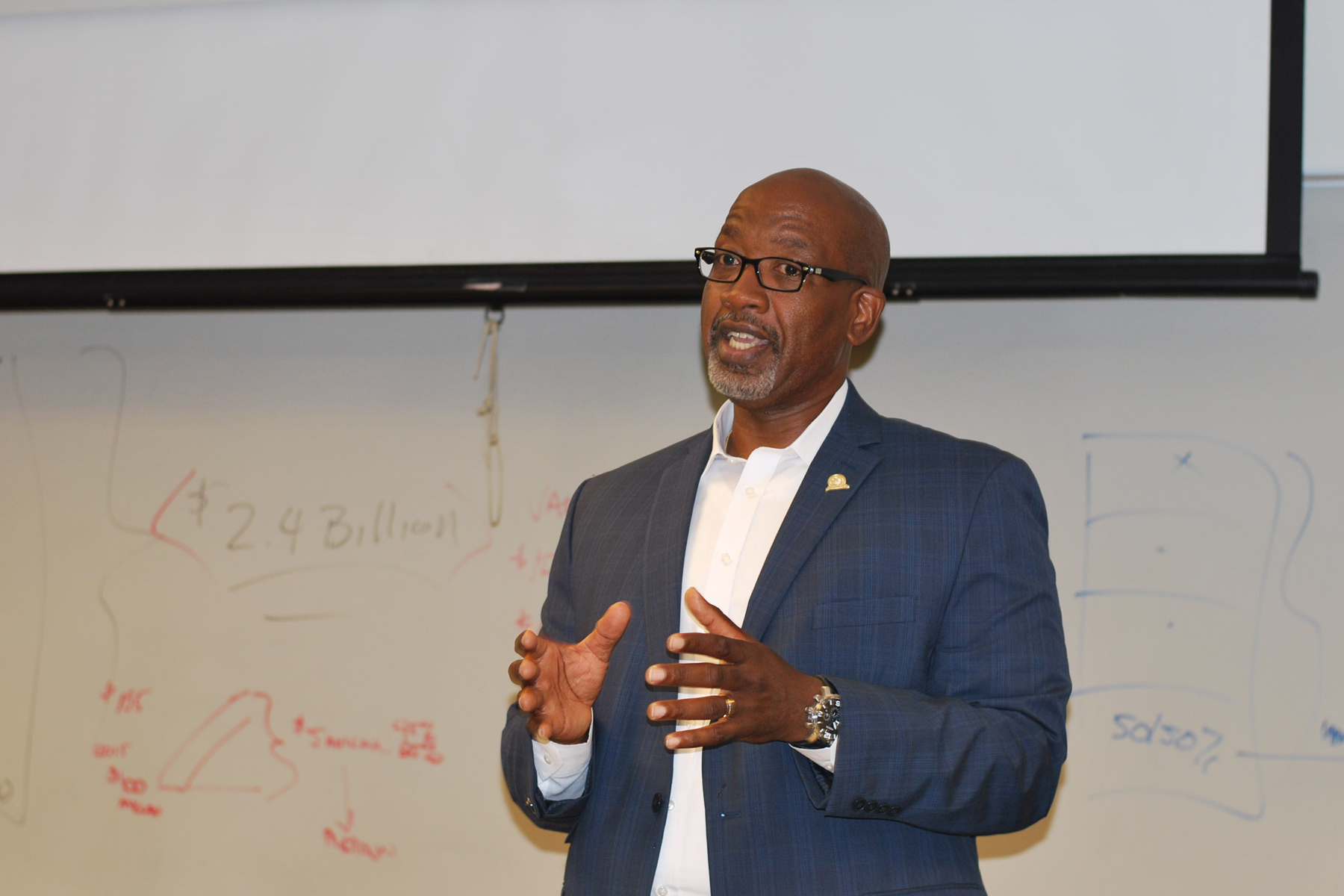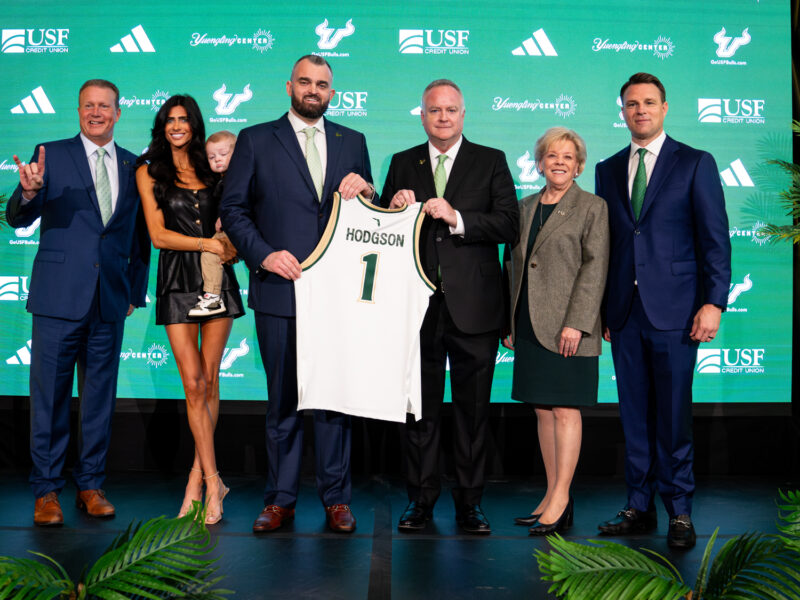Above photo: Ken Welch graduated from USF St. Petersburg in 1985 and was elected to Pinellas County Commission 2000. He is wary of plans to consolidate the USF campuses. Courtesy of Lauren Hensley
By Michael Moore Jr.
Ken Welch graduated from USF St. Petersburg in 1985, 21 years before the tiny Bayboro campus was awarded separate accreditation – and considerable independence – by the Southern Association of Colleges and Schools.
Now, the veteran Pinellas County commissioner is worried about losing his alma mater to the control of administrators in Tampa. And, more importantly, he’s worried about losing a university attuned and committed to the higher education needs of its community.
“As a fellow Bull, I understand the unique and special culture of USFSP,” Welch said in an interview with The Crow’s Nest. “It provides opportunities to Pinellas students and those outside the area, but I think it has uniquely matured here over the last decade.”
Welch, a native and third-generation resident of St. Petersburg, was elected to the County Commission in 2000 and re-elected every four years since then. His late father, David Welch, served three terms on the St. Petersburg City Council in the 1980s and 1990s.
Over the years, the St. Petersburg campus has taken pride in accepting and educating students who might have trouble gaining admission to larger state universities.
That includes older, non-traditional students who take one or two classes at a time, minority students, and students with intellectual disabilities.
Now Welch and other champions of USF St. Petersburg worry that consolidation of the three USF campuses under Tampa and the quest for extra funding as a pre-eminent state university would create a “barrier for entry” for some Pinellas residents seeking higher education on the St. Petersburg campus.
“The access that the university provides to Pinellas (students) should be protected,” Welch said. “The response shows that many in the community are committed to protecting it. They’ve got to stay vocal and stay involved as the process goes forward, because their voice does matter.”
That theme was also invoked by the St. Petersburg City Council, which cited “questions about enrollment and minority access” last week in a resolution urging the Legislature to postpone the proposal until it can be thoroughly studied.
In a letter to fellow lawmakers urging a delay, state Rep. Ben Diamond and Sen. Darryl Rouson, both St. Petersburg Democrats, also asked how the proposal would affect admissions and “access by minority students.”
The Pinellas County Economic Development Council, a coalition of business and political leaders, has also called for delay and more study. Welch is its chairman.
In a letter signed by Welch, the development council expressed concerns over the proposed consolidation, noting that USF St. Petersburg gained its separate accreditation after “years of thoughtful discussion and planning.”
“There has simply not been adequate time to properly evaluate and discuss the proposed legislation,” the letter says.
While Welch acknowledges that there may be advantages to the potential USF merger, he also mentions the potential disadvantages, namely the loss of control in the decision-making process in course offerings, majors and degrees.
“These issues are of particular interest and concern to our industrial base,” the letter reads.
The county commissioner has watched the campus mature and struggle to get to the point where it can best meet the needs of those in Pinellas County. He says that the campus has made big strides over the years and that he’s not interested in going backward.
He says it’s working just fine the way it is now.
“I need to have some very solid assurances that this would continue to be the case under this realignment,” Welch said. “USFSP is doing a great job at providing the kind of education that our students deserve and that frankly wasn’t available to me in 1981.”
Welch did the first two years of his undergraduate education at Tampa since USF St. Petersburg didn’t have a four-year accounting program at the time. The campus now offers both a bachelor of arts and bachelor of science in accounting.
While he is open to discussing the sensibility of a merger, Welch says, that should come before such sweeping legislation is introduced.
“If having a voice at the table matters,” he said, “then it should matter at the beginning of the process and not just at the end of it.”



